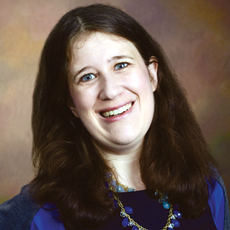
For all the progress nursing homes have made in reducing antipsychotic medications — and it has been significant — occasionally you hear whispers about a contributing factor to the success.
It relates to how certain conditions, such as Huntington’s disease, Tourette’s syndrome and schizophrenia, are exempt in relationship to data around antipsychotic resident rates. Over the past few years, I’ve heard nurses make jokes about how many more schizophrenic patients they have, or expect to have. Except I never really know if they’re joking.
And neither does the Center for Medicare & Medicaid Services, noting in its proposed rule this week that “some nursing homes are circumventing the pressure to reduce antipsychotic drug use by seeking an appropriate diagnosis from a physician that would justify the use of these drugs for a resident, typically schizophrenia.” It noted how AMDA released a statement in 2017 on “Diagnosing Schizophrenia in Skilled Nursing Centers,” which said that clinicians should be mindful of labeling patients with other diagnoses to justify the use of medications or other treatments.”
“Schizophrenia is a different diagnosis than dementia, with different protocols of care,” reasserted LeadingAge Vice President of Regulatory Affairs Janine Finck-Boyle on Thursday.
But if you are running CMS, you’ve been faced for several years with these questions for psychotropic drugs: One, how do you encourage decreasing use of unnecessary drugs for nursing home residents? Two, how do you discourage the wrong diagnoses to keep people on a medication? Three, how do you make a requirement that balances the “right” thing for residents with an extra burden on beleaguered nursing providers? The last question is constant and endless, a Mobius strip that’s especially tricky given the Trump administration’s firm belief in loosening regulations.
So CMS found a middle ground, one in which it said it will allow PRN (Pro re Nata) prescriptions for antipsychotics to run more than 14 days if an attending physician or prescriber documents the rationale in a resident’s medical record. They also must indicate the expected duration.
It stressed providers still must “ensure that the proposed requirements provide sufficient protection for residents from receiving inappropriate or unnecessary drugs and that medications are prescribed for residents based on their healthcare needs and not for the convenience of the staff or any other inappropriate reasons.
“However, we must also be mindful not to propose requirements that are overly burdensome to the facilities and healthcare providers that do not contribute to the quality of care for the residents, especially if they could result in interfering with residents receiving appropriate care for their health care needs,” the rule adds.
The same requirements for all psychotropic drugs will “simplify the survey process and reduce improper deficiency citations, as well as remove potential obstacles for mental health professionals to provide quality care for residents,” it added.The revisions to section 483.45(e) also mean all psychotropic medications are equal when it comes to PRN orders.
Finck-Boyle stressed that in addition to providers’ real progress, attitudes in nursing homes around antipsychotics have changed significantly.
“Today’s thinking is that the evidence does not support the use of them for dementia. It is really important to remember that nursing homes — not regulators — have done the difficult work of finding alternatives to the use of antipsychotic medications and putting these alternatives into practice, with staff retraining and revisions of care protocols,” she said.
The PRN change will help further reduce antipsychotic use, she believes.
The contrasting view is geriatrician and author Al Power, M.D., who says the change relies on a fallacy that “A PRN dose is being given when it is needed.”
“There are approaches out there that have significantly reduced or eliminated antipsychotic use in dementia,” he wrote yesterday. “Those who haven’t learned them need to be educated, not to have guidelines that make it easier to do the wrong thing.”
Ultimately, whether you cheer this change depends on how optimistic you are feeling, not only about your co-workers but also about the industry. Or, to quote Dirty Harry: “You’ve got to ask yourself one question. Do I feel lucky? Well, do ya, punk?”
Follow Deputy Editor Elizabeth Newman @TigerELN.




